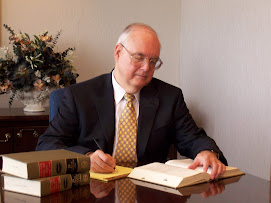(May 29, 2009 Pittsburgh Post-Gazette. Tim Grant writer).
As mentioned yesterday, I found two good articles I wanted to touch upon. Yesterday dealt with passwords to accounts that should be left with someone so that upon your passing, access can be made by your executor. As I mentioned, that issue covers a plethora of information that should be "passed along" in the event of our demise.
As you can see above, the other article deals with divorce. Since there is so much good information in this article, I would like to summarize its contents here.
The writer uses a family example of a spouse from a 15-year second marriage who discovers that her husband's 1 million dollar IRA is completely under his control. Up to that point, only his children were the beneficiaries in the event of his death and the spouse's children would receive nothing. You get a sense of helplessness from the standpoint of the spouse in this article.
The story continues with the couple meeting with a lawyer who set up the IRA to pay into a trust, that provides for the spouse during her lifetime but apparently all kids share in the amount left over after both deaths. What the article didn't say, but may have been put into place, was that the IRA proceeds in trust could also provide for the children for their life expectancy, a type of spend-thrift trust, that would protect the proceeds from the children's creditors and possible divorcing spouses. (Of course the IRA would not continue for the children's lives but likely the life expectancy of the spouse. The amount paid out however, would be held in trust for their benefit).
The article further discusses the need for estate planning to resolve Blended Family estate planning issues. It quotes a trust officer with a bank in Pennsylvania commenting that relying on a verbal understanding between spouses may not be the best approach, especially if one spouse survives for a number of years after the other and the fact that sometimes things and thinking just changes.
This is a hard one but I believe she is correct. There is that part of me that says that marriage or other committed relationships are meant to have a higher level of trust and not lowered to the trust level of an arms-length business agreement. However, one spouse has just as much right as the other to feel that upon their passing, at least their share of the estate or an agreed upon division of the estate, will go to their children after the eventual passing of their loved one. In my practice, I very often see the surviving spouse changing the original verbal intent of the couple after the first one has died. I don't see any mean spiritedness about this but it has a lot to do with the dual allegiance to both the lost spouse and the surviving spouse's own children. Add the potential for family strife and suspicion and the situation becomes more difficult.
One other tool mentioned is a QTIP trust which provides for the surviving spouse, without a tax on the first death, and the remainder proceeds going to each side's family as mutually decided upon by the couple.
As the article points out, and I completely agree, Blended Families are typically very emotional meetings between the couple and their estate planners. Very often there have been heated discussions between the couple prior to seeking advice with a seemingly impasse hit by both of them. How to balance competing interests and expectations is almost a no-win situation. The advise and guidance of a good advisor can make all the difference with options being discussed that both find acceptable and satisfactory.
Subscribe to:
Post Comments (Atom)

No comments:
Post a Comment